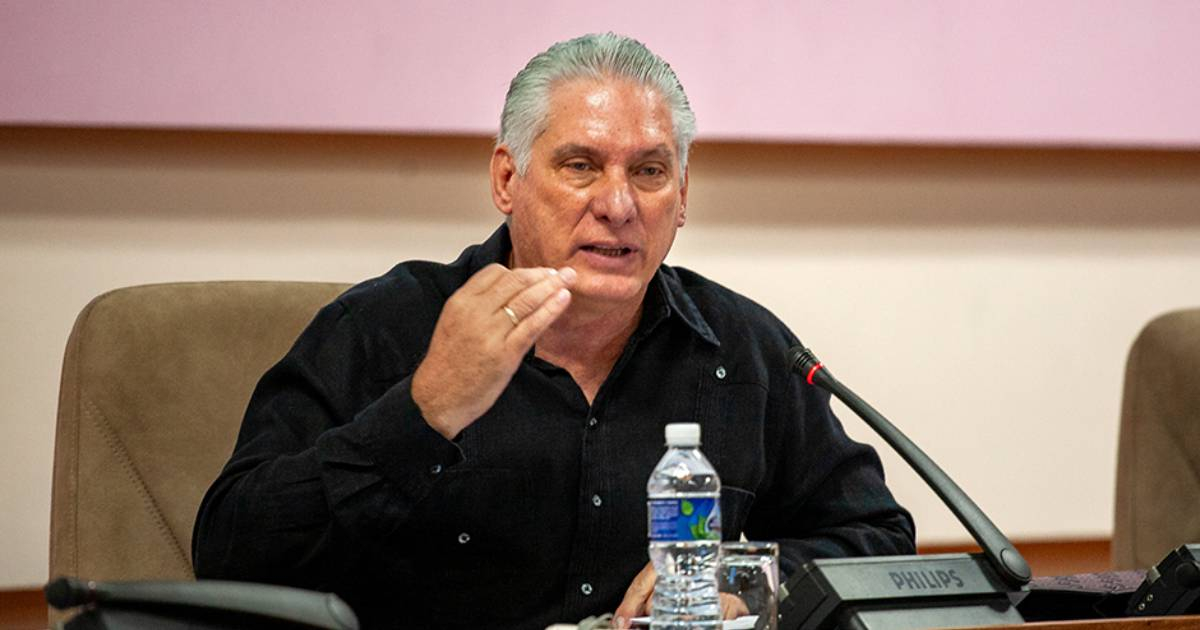Cuban leader Miguel Díaz-Canel has announced a "reorganization" plan for both private and state sectors due to the "irresponsible manner" in which some of these institutions are being managed. Díaz-Canel emphasized that this is not a witch hunt against any specific form of management or ownership, although the official rhetoric has been targeting Micro, Small, and Medium Enterprises (MSMEs) for months, particularly those importing finished products or not adhering to price caps.
Aim for Economic Stability
"What we are proposing is an organization that ensures the highest number of goods and services at reasonable prices for the population, and that everyone contributes everything they have to offer," stated Díaz-Canel. During his report to the Economic Commission of the National Assembly of People's Power on the progress of the banking process, the leader reiterated that the Cuban economic model fundamentally relies on the state socialist enterprise, as cited by Cubadebate.
However, he stressed that both the state and non-state sectors bear responsibilities: "Both need to operate within the law and contribute through taxes or levies. Where there has been a deviation in a non-state management form, there is usually a related state entity," he indicated.
The president added that one of the government's priorities is macroeconomic stabilization, a program that encompasses several processes. Efforts are also being made to improve the economic management system and the allocation of foreign currency, considering the decentralization of powers.
Díaz-Canel reiterated the presence of deviations and distortions in the economy that must be eradicated. "There is a budget deficit, high tax evasion, and price distortions," he said. He also highlighted issues like speculation, inflation, corruption, informal work with a high tendency towards tax evasion, disconnection from study and work, and the vulnerability of families in a context of state inefficiency that has led to an increase in extreme poverty.
This week, the Council of Ministers approved six decree laws, which will be presented to the Council of State, updating the legal provisions for MSMEs, self-employed workers, and private sector companies in Cuba, emphasizing that this is not a witch hunt. "We need to clarify each actor's role in the country's economy, and the Constitution states that the main actor is the state socialist enterprise," emphasized Prime Minister Manuel Marrero.
The Council of Ministers also approved two additional decrees: one modifies Decree 49, specifying the activities MSMEs are not authorized to perform. The second decree establishes a new Central State Administration Agency: the National Institute of Non-State Actors.
Since last week, the government has started fining MSMEs for alleged violations of price caps on six essential items. The Minister of Finance and Prices in Cuba, Vladimir Regueiro Ale, warned MSME owners that it is a "serious crime" to hide merchandise and not sell it to the population.
Understanding Cuba's Economic Reorganization
Here are some key questions and answers to help you understand the recent economic reorganization announced by Miguel Díaz-Canel.
What is the purpose of the economic reorganization announced by Díaz-Canel?
The reorganization aims to ensure the highest number of goods and services at reasonable prices for the population and to make sure that everyone contributes according to their capability.
How does this plan affect MSMEs in Cuba?
The plan includes new legal provisions and regulations for MSMEs, particularly targeting those importing finished products or not adhering to price caps. The government has also started imposing fines for violations of these price caps.
What are some of the economic issues highlighted by Díaz-Canel?
Díaz-Canel pointed out several economic issues, including budget deficits, high tax evasion, price distortions, speculation, inflation, corruption, and informal work with a high tendency towards tax evasion.
